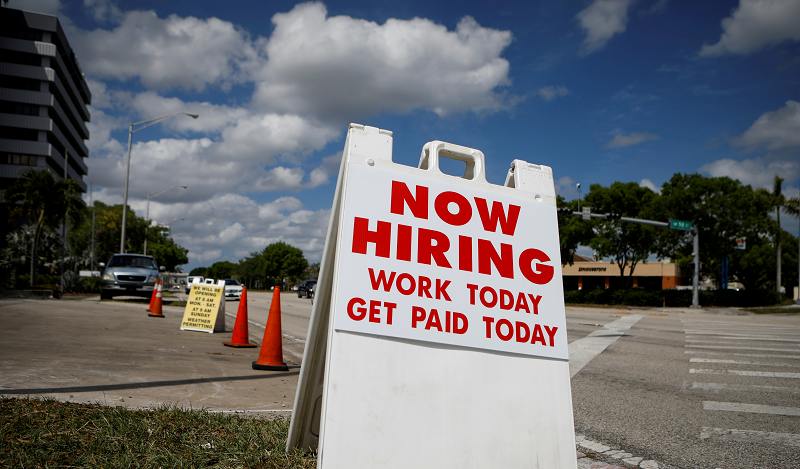Welcome to Our Research Archive
Search and filter by content type, issue area, author, and keyword
- ✕ Clear Filter
- Adam J. White (1)
- Angela Rachidi (62)
- Beth Akers (39)
- Brent Orrell (101)
- Bruce D. Meyer (15)
- Casey B. Mulligan (1)
- Charles Murray (1)
- Daniel A. Cox (11)
- Edward J. Pinto (28)
- Edward L. Glaeser (10)
- Frederick M. Hess (40)
- Greg Wright (1)
- Howard Husock (91)
- Ian Rowe (15)
- James C. Capretta (1)
- James Pethokoukis (20)
- John Bailey (2)
- Joseph Fuller (5)
- Kevin Corinth (76)
- Kyle Pomerleau (9)
- Leslie Ford (6)
- marie cohen (1)
- Mark Schneider (9)
- Mason M. Bishop (2)
- Matt Weidinger (84)
- Matthew Continetti (1)
- Max Eden (3)
- Michael Barone (1)
- Michael Brickman (3)
- Michael Pugh (2)
- Michael R. Strain (35)
- Naomi E. Feldman (1)
- Naomi Schaefer Riley (67)
- Nat Malkus (21)
- Nicholas Eberstadt (5)
- Paul Ryan (3)
- Preston Cooper (38)
- R. Glenn Hubbard (4)
- Ramesh Ponnuru (5)
- Raphael Colard (1)
- Richard Burkhauser (8)
- Richard V. Burkhauser (4)
- Robert Cherry (6)
- Robert Doar (14)
- Robert Pondiscio (18)
- Ross Douthat (2)
- Ryan Streeter (5)
- Sally Satel (2)
- Samuel J. Abrams (7)
- Scott Winship (62)
- Stan Veuger (10)
- Timothy P. Carney (16)
- Tobias Peter (35)
- W. Bradford Wilcox (86)
- Yuval Levin (10)

November 27, 2024
Finally, a Win for Working Men
Since the 1970s, working men, particularly those without college degrees, have experienced lower employment rates, increased social isolation and growing health risks. Today, we are starting to see early signs that this problem may be abating. But lately, men have started going back to work. During most recessions, the male employment rate falls and never returns…

November 22, 2024
A Side Effect of the Booming Job Market: Wage Inequality Is Way Down
Lessons of the post-COVID economy. When voters tell you what they are concerned about, believe them. Exit polls from the presidential election the show that the economy ranked first among voters’ concerns at 32 percent, almost three times more than the next closest issue, immigration. A plurality of voters—45 percent—said that their financial situation was worse than…

November 15, 2024
Calibration: Making AI a Partner at Work
Artificial intelligence (AI) is reshaping the workforce, yet the workers who stand to benefit the most are often the most wary of it. Lower-skilled and less-educated workers view AI as a threat, fearing job loss and marginalization. But research tells a different story. These workers could gain the most from AI—if they learn to use…

November 12, 2024
Irresistible Policy, Meet the Unmovable Labor Market
Gad Levanon, chief economist at The Burning Glass Institute, analyzed data relating to the share of undocumented workers in a wide variety of trades and lower-wage, lower-skilled occupations, as well as higher-skilled jobs in construction and manufacturing. Bear in mind that many of these occupations are related to housing, the largest contributor to our recent bout of high…

October 18, 2024
What’s Working in America’s Workforce System
The American workforce is undergoing rapid changes driven by demographic shifts, technological advancements, and evolving skill requirements. During this time of rapid disruption, the question arises: How can our training programs and workforce development systems do a better job of supporting workers and employers to meet their skill and employment needs? The Workforce Futures Initiative (WFI)—a collaborative research effort between…

October 8, 2024
The Longshoremen Are Making the Wrong Demands
They shouldn’t be trying to block automation. They should be trying adapt to it. The International Longshoremen’s Association ended a three-day strike last Thursday after reaching a deal with a consortium of port operators for a large wage increase for the the 47,000 dockworkers, phased in over the next few years. The deal gives both…

October 8, 2024
Unplanned Obsolescence
Tech sector layoffs have grabbed a lot of headlines over the past two years since the Federal Reserve ended its zero interest rate policy that enabled vast investment in research, development, and high-tech start-ups and as artificial intelligence (AI) has begun to reshape a growing number of sectors. A recent article from the Wall Street Journal highlights a harsh…

October 3, 2024
The New “Old Girls Network” in the American Workplace
One of America’s great success stories has been the gradual opening of opportunities for women in nearly every field, from athletics to higher education. Nowhere has the change been more profound than in the workplace. In 1970, just over 15 percent of all management jobs were held by women. According to McKinsey, that figure has now risen…

August 20, 2024
The Robots Are Going to Take These Jobs. Thank Goodness.
Today, The Verge profiled a new Tesla project aimed at training robots for routine materials movement. The company is hiring workers between 5’7” and 5’11” to move 30-pound packages while wearing sensor arrays and virtual reality goggles. These workers will provide the motion capture data to train Tesla’s Optimus robots, which will eventually begin taking over this…
June 11, 2024
The Social Workplace: A Compendium
Key Points Executive Summary In an era marked by a decline in social capital across American institutions, the workplace has become a crucial arena for fostering social connections. Through their careers, Americans not only satisfy their economic needs but also find personal fulfillment, build social networks, and seek—and often discover—a sense of meaning and purpose…